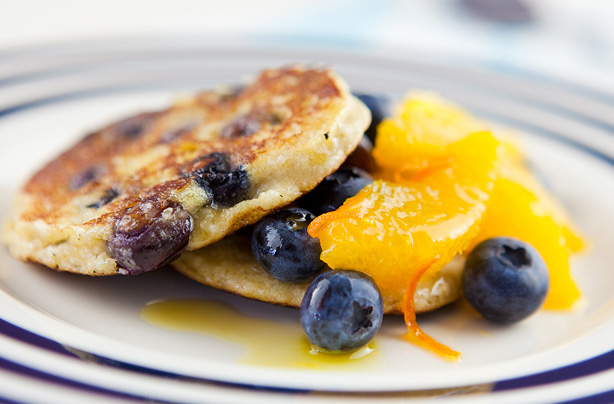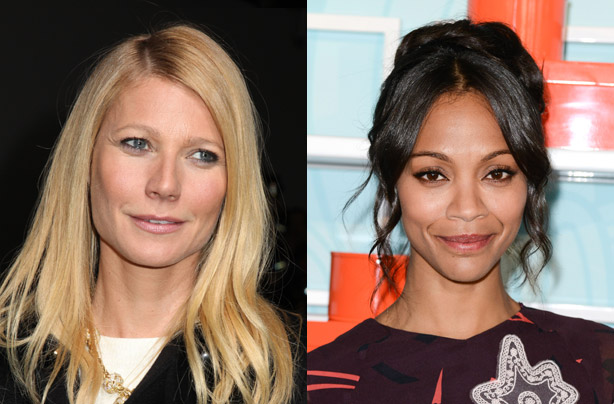What is clean eating? Food list and meal plans
We're hearing that this 'clean eating' business is doing wonders for women: giving them more energy, better skin, improving their mood... So, how does it all work? We explain...

Every now and then a new food craze comes along that makes us think, 'Hmm, we might try that...' and then we go back to our bar of Dairy Milk and forget all about it.
But here's one we think we could actually get on board with: clean eating. Heard about it? Yes, us too, but do you really know what it involves, what the pros and cons are, and how to get started? Here we explain everything you need to know about clean eating and how to put it into practice.
You might think clean eating all sounds a bit idealistic. Eating purely unprocessed, unrefined and totally healthy foods seems a little, well, a little Gwyneth Paltrow doesn't it? However, there are some dieticians, doctors and fitness fanatics (plus Gwynnie of course) who swear by it for the health benefits.

Clean eating is basically all about enjoying food the way nature intended it, and becoming more aware of the journey food has made before it lands on your plate. For example, do you think when man first discovered the chicken (or the egg), he envisaged that one day people would be turning them into chicken nuggets? Probably not.. And do you think when he first found the humble potato he envisaged them being cut up and placed in a deep fat fryer? Again, probably not.
The basic principles behind clean eating are:
- remove toxins from your diet
- stop eating processed food
- cut sodium intake
- eat less meat
- eat more vegetables
- eat whole grains
While this sort of healthy eating can certainly aid weightloss it isn't really a diet, it's more a change in lifestyle. The idea is that you eat foods as nature intended them to be eaten, known as 'clean' foods, and you maintain a balanced level of energy as opposed to the peaks and troughs you get from processed, fatty and sugary foods. Every calorie you eat will be rich in nutritional value, no more added preservatives, colourings and sugars, and no more filling up on empty calories. And if you lose weight? Great! You'll be maintaining a healthy diet which you'll be likely to continue with rather than a quick-fix weight loss plan.
What can I eat?
You want to eat as many 'clean' foods as possible, that means fresh wholefoods that are found naturally and made up of one ingredient. So...
Parenting advice, hot topics, best buys and family finance tips delivered straight to your inbox.
- Fruit and vegetables - Although not totally necessary, clean eaters encourage you to buy organic fruit and veg, as it cuts out the pesticides and chemicals used on the produce. Head to your local farmer's market - they might not be labelled as organic but the produce tends to be chemical free. Chat to the farmer to find out how they grow their foods. You want to eat as much veg as possible, so if you usually eat meat at every meal try going vegetarian at the weekends or always having a vegetarian starter.
- Meat and fish - Go for the highest quality meat you can afford. Looking at the back of the packet is a good way to check. Organic, pasture-raised and grass-fed are the best meats. Smaller, cold water fish are great as they're lower in toxins. Try for salmon, sardines, hallibut, mackeral and trout.
- Eggs - We're sure lots of you already know the taste benefits of free-range eggs, but organic, free-range and pasture-raised eggs deliver the most nutrition and are higher in omega-3 fatty acids.
- Grains - Whole grains such as wheat, barley, rye, and gluten-free grains such as quinoa, rice and millet.
- Legumes - Legumes such as beans, peas and lentils are a great source of protein (and fill you up, too).
- Oils - Quality oils such as coconut oil, olive oil and nut and seed oils. You can use coconut and olive oils for cooking and nut and seed oils make lovely dressings for salads.
- Raw food - Lots of clean eaters also sing the praises of raw foods. The idea is that heating food destroys the natural enzymes which are so good for digestion and fighting chronic disease. You might not want to go wholly raw, as this is quite hard going, and it can be difficult to get enough protein, iron and calcium because most animal products can't be eaten raw. Some examples of eating raw are using ground, dried chickpeas instead of flour, and there are all sorts of posh things you can buy, like kale (a sort of cabbage) and raw honey, which'll get you going on your raw diet, although ingredients like these can be pretty costly.
Foods to avoid when clean eating
Basically anything that's been altered from its natural state. If you're confused about whether something has been processed or not, ask yourself: did it start life like that? Do chips come out of the ground like that? Do jars of pasta sauce grow on trees?
Don't think this means all packaged and canned foods are bad foods - things like tinned kidney beans, for example, are near enough unaltered and pre-packed salads (that haven't been sprayed with pesticide.) And don't worry that you can't have a hearty pasta sauce on your spaghetti, it's just about making it yourself so it's fresh and you know exactly what's gone into it. What you're trying to avoid are things that have been processed and had things added to them, like a sausage roll, for example.
The most extreme of clean eaters would probably tell you that you should never eat cake again. But a slice of Viccy sponge every so often isn't going to undo all the good that your clean and healthy lifestyle has been doing for you. Just make sure you define how often 'every so often' is, and stick to it.
Is clean eating actually healthy?
Well generally, yes. You're eating the freshest and most natural ingredients, getting far more than the recommended 'five-a-day', as well as cutting out added sugar, E numbers, preservatives and the amount of bad fats in your diet. It hasn't escaped criticism though. People's beliefs about what 'clean' includes can vary greatly though, from one person saying a glass of orange juice is 'clean' to another saying it contains too much sugar.
Many fitness experts suggest that while eating healthily is great, eating some pre-prepared foods and fizzy drinks is not going to prevent you from reaching fitness goals. Many people can be at the height of fitness without having to follow a rigorous clean eating plan.
Buying lots of fresh produce can also be very expensive, it has a shorter shelf-life and you can pay a premium for organic produce.
In general, clean eating gets a big green tick from health professionals, but you can't be sure whether it's going to work for you before you give it a go. Read on for some tips on how to get started.
6 tips to get you clean eating
It all sounds great, right? But where on earth do you start? Old habits (aka eating cake) are hard to break. Here are some tips to get you started...
1. Clean out your fridge and cupboards and make sure they're only stocked with clean food.
2. Consider doing it with a friend. You can support each other when you're craving a good old packet of crisps and share recipe ideas and new things you've tried.
2. Trying new foods and new tastes can be overwhelming. Don't imagine that you're going to like everything. Have patience and keep a note of things you enjoyed.
3. Fight the white! Avoid white bread, white rice, white pasta and sugar and stick to brown.
4. Eat as much fruit, veg, whole grains and lean meats as you possibly can!
5. Get a cooler bag that you can pack your clean food in when you're on the go (it's needed with all that fresh food you'll be eating).
6. Don't worry if you don't exactly feel like the picture of health in the first few weeks. A dramatic diet change can be hard, especially when you're taking away your normal pick-me-ups. You might feel tired and a bit irritable at first.
Gemma Chandler is a lifestyle writer specialising in kids' educational media across a range of topics including nature, history, science and geography across digital, print, social media and video channels. She joined Creature & Co. at 2015, shortly becoming Digital Editor of National Geographic Kids magazine.